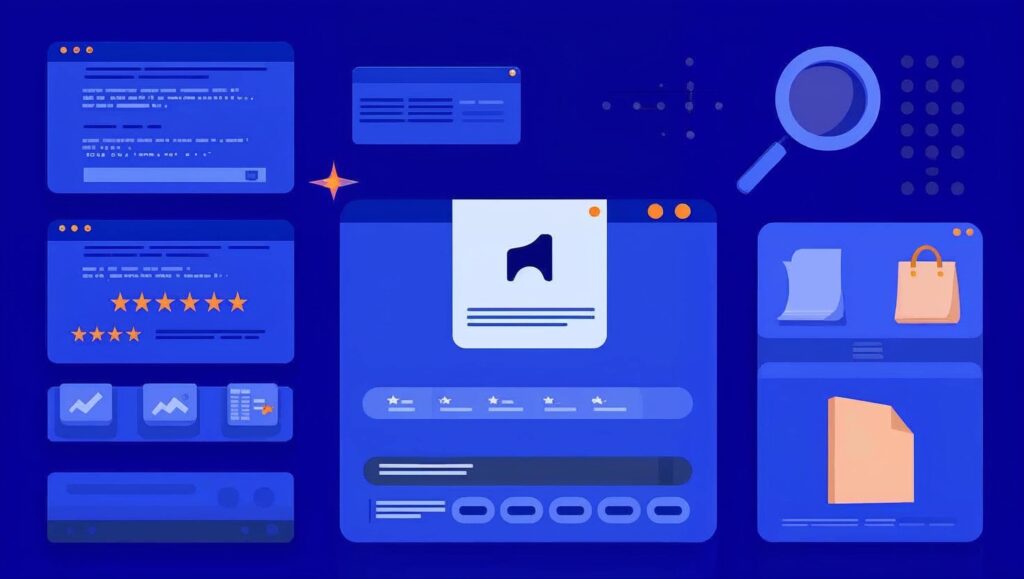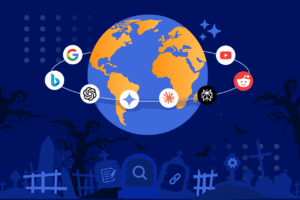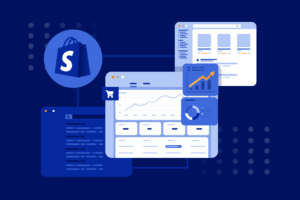SEO isn’t going away, but how we measure its success is changing fast. Between AI-powered search results, growing zero-click searches, and major shifts in how users behave online, it’s clear that the traditional SEO playbook isn’t enough anymore.
This AI + SEO Statistics resource brings together the most important data and analysis from across the industry to help you make sense of what’s really happening. If you’re a marketing leader looking for clarity on the impact of AI and large language models (LLMs) on SEO, this is for you.
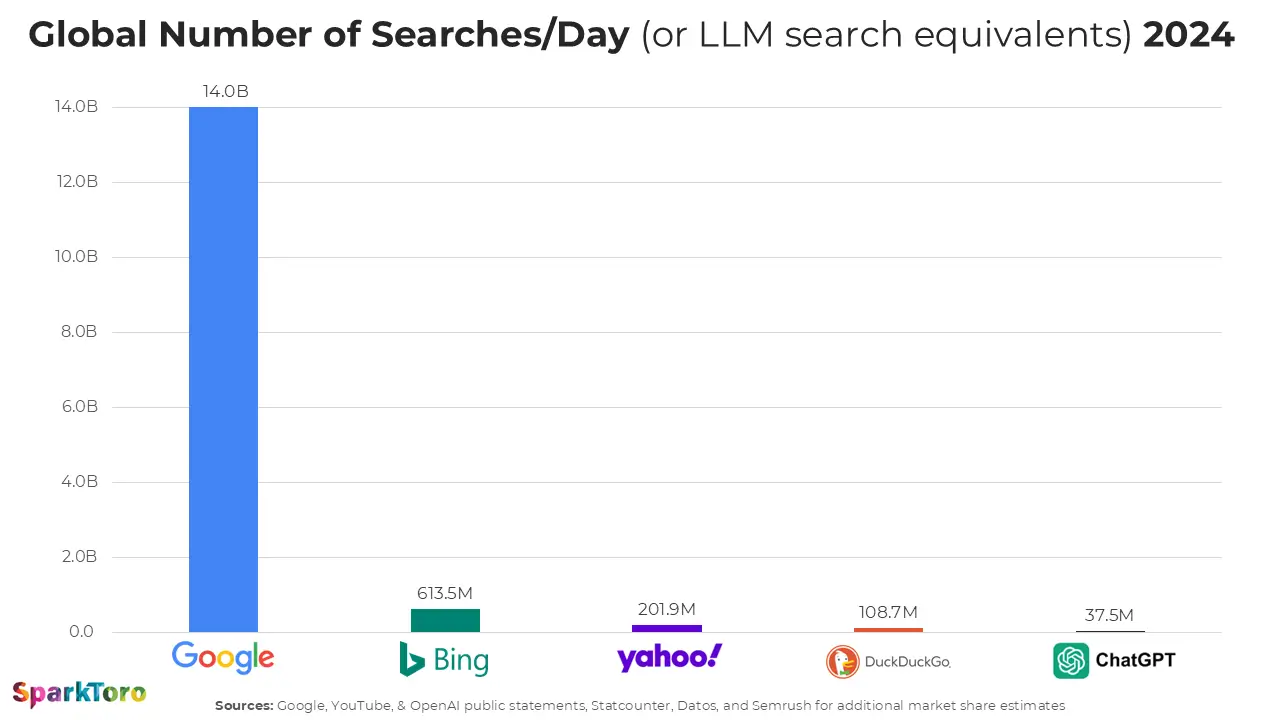
AI SEO Statistics — Key Takeaways
Here are the most impactful, current data points illustrating how AI and search behavior are evolving:
• 58.5% of Google searches in the U.S. result in zero clicks to websites.
• 20% of Americans use AI tools heavily each month, but search remains dominant, used monthly by 95% of Americans, with 85%+ heavy use
• Google’s total search volume grew 21.6% from 2023 to 2024.
• Clicks to external websites are flat or declining.
• Google’s AI Overviews reduced organic CTR by an estimated 20–40%.
• ChatGPT receives 37.5 million prompts per day vs. Google’s 14 billion searches per day.
• Informational queries are the most common search type on both Google and ChatGPT.
• AI Overviews disproportionately appear for these informational queries, capturing top-of-funnel engagement.
Don’t Let AI Erase Your Organic Traffic
Traditional SEO is evolving. We help forward-thinking brands adapt their strategy for AI Platforms like ChatGPT, Gemini, and more.
The Disconnect Between Visibility and Engagement
Search volume is growing, but user clicks to websites are stagnating. The core reason is the rise of zero-click searches, where users get what they need without clicking through to a third-party site.
20% of Americans now use AI tools 10+ times per month, yet 95% still use traditional search engines monthly, and 85%+ are heavy search users.
AI is coexisting with, not replacing, search.
According to SparkToro’s study:
- In the U.S., only 41.5% of searches result in a click
- The remaining 58.5% are zero-click events
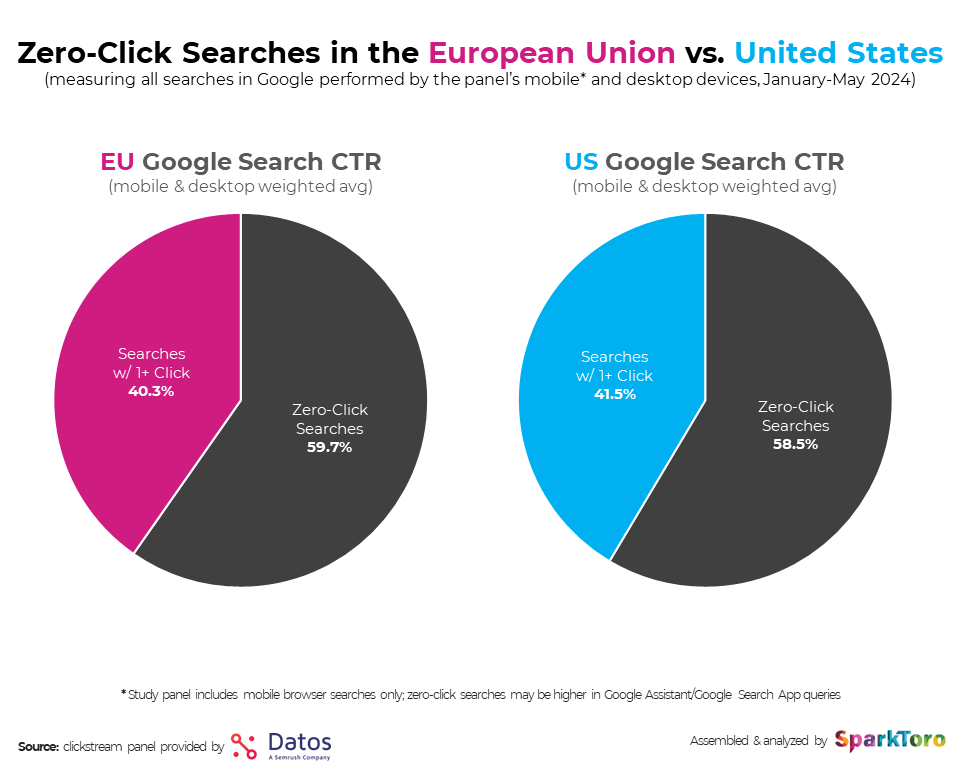
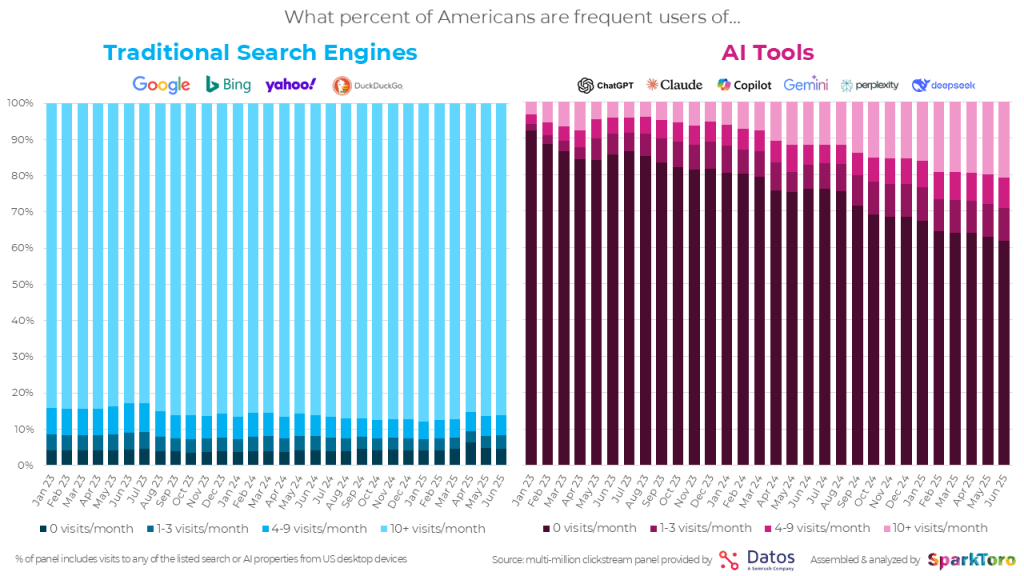
Google Search Is Still Growing
One of the most surprising data points is that Google isn’t losing ground. It’s growing.
- In 2024, total Google search volume increased by more than 20% year-over-year
- Despite this growth, clicks to third-party websites did not follow the same trend
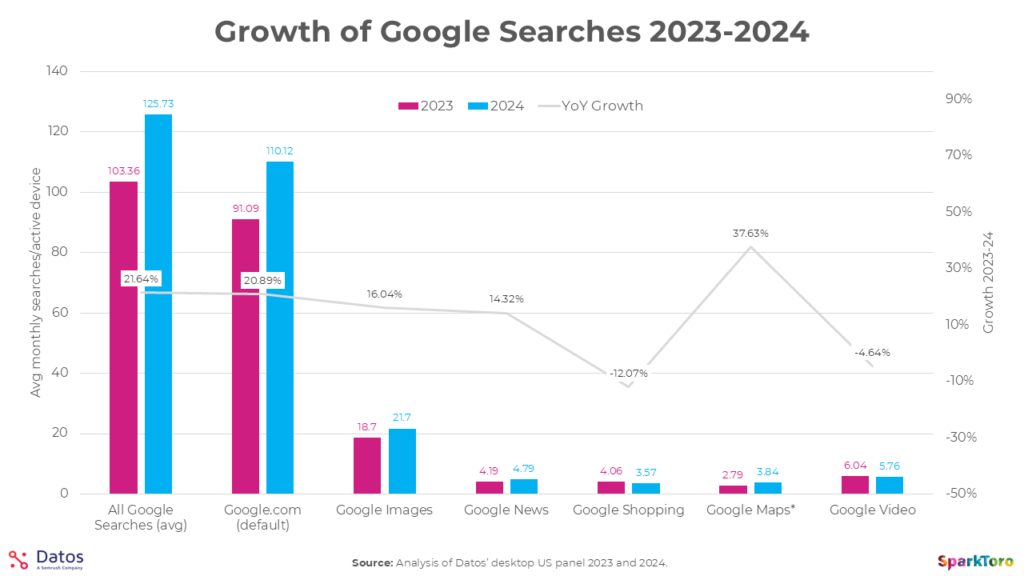
This gap between rising search activity and declining click-throughs reinforces how much more competitive and closed the search landscape has become.
What AI Overviews Are Doing to Organic Traffic
Google’s AI Overviews, which launched in 2024, are designed to answer questions directly on the search page using AI-generated summaries. While they’re convenient for users, they reduce the need to click on organic listings.
Data from Seer Interactive shows:
- Organic click-through rates drop by 20% to 40% when AI Overviews are displayed
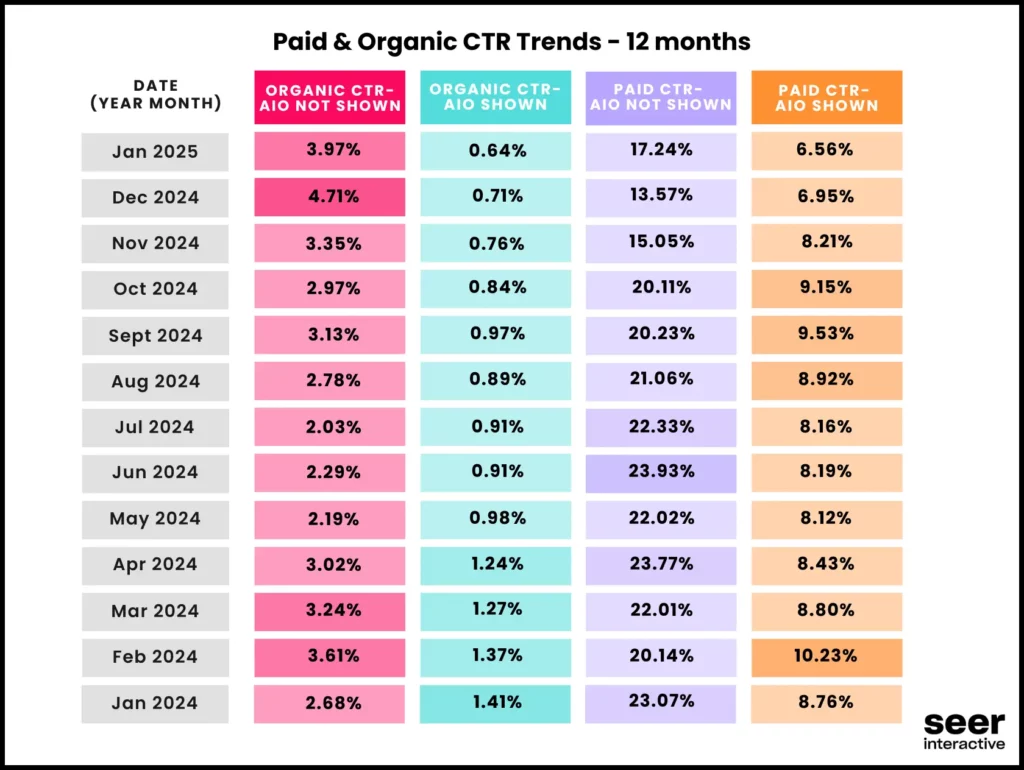
These summaries appear most often for informational queries—the same types of searches that content marketers have traditionally targeted to generate top-of-funnel visibility.
The Type of Search Matters
Search intent plays a central role in how AI Overviews affect visibility.
Informational queries are not only the most common type of search, but also the most likely to trigger an AI-generated summary.
This aligns with user behavior in both Google and AI platforms like ChatGPT:
- Informational queries make up 36.4% of known search intent on Google, and 52.2% on ChatGPT
- These queries often lead to AI Overviews replacing traditional organic listings
- Transactional or branded queries tend to result in more direct clicks and fewer AI interruptions
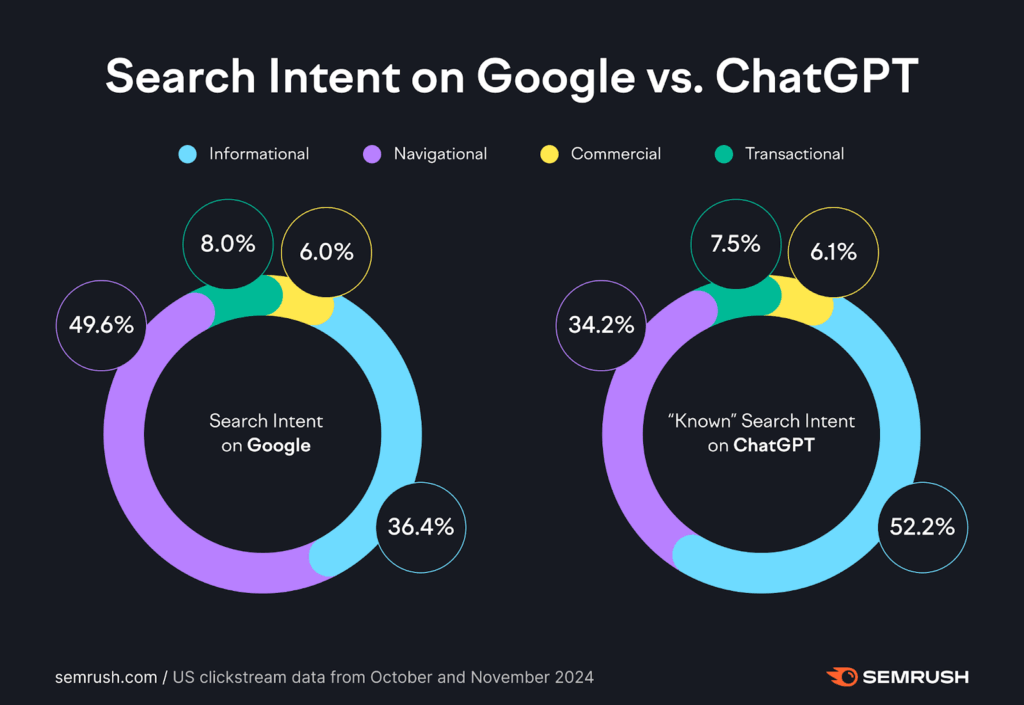
This reinforces that AI is reshaping the top of the funnel. Brands investing in awareness content need to rethink how they measure success when users are getting answers directly in the search results or LLM interfaces.
AI impacts search differently depending on query intent. Data from Datos and SparkToro break this down:
- Informational searches are most likely to trigger AI Overviews
- Commercial and research queries are somewhat affected
- Transactional and branded searches remain the least affected
This means bottom-of-funnel SEO strategies still drive traffic. But top-of-funnel content, which often fuels awareness, is increasingly being intercepted by AI summaries.
Even as AI intercepts informational searches, SparkToro shows that it’s not cannibalizing behavior. Search stays strong in the background, with traditional search still widespread.
What About LLMs Replacing Google?
Despite rising interest in tools like ChatGPT, they are not displacing Google.
According to research released by SparkToro in August 2025, only 20% of Americans are heavy AI users (10+ uses/month), while search remains dominant: 95% still use it monthly, and more than 85% are considered heavy users.
Here’s what the data shows:
- 21% of users visited ChatGPT monthly in Q4 2024
- 99.8% of those same users also used Google
- Google’s daily search volume is 14 billion compared to ChatGPT’s 37.5 million
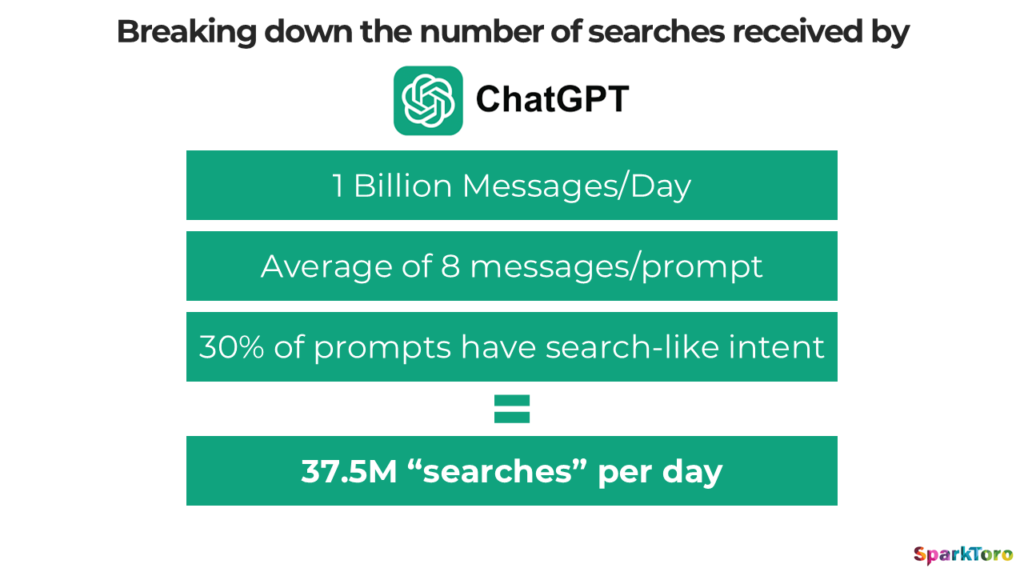
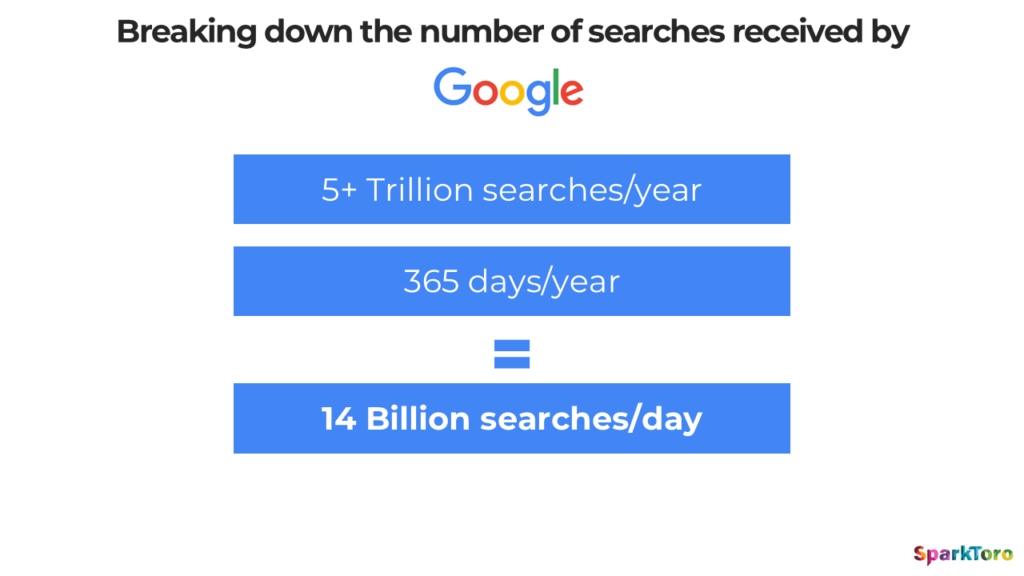
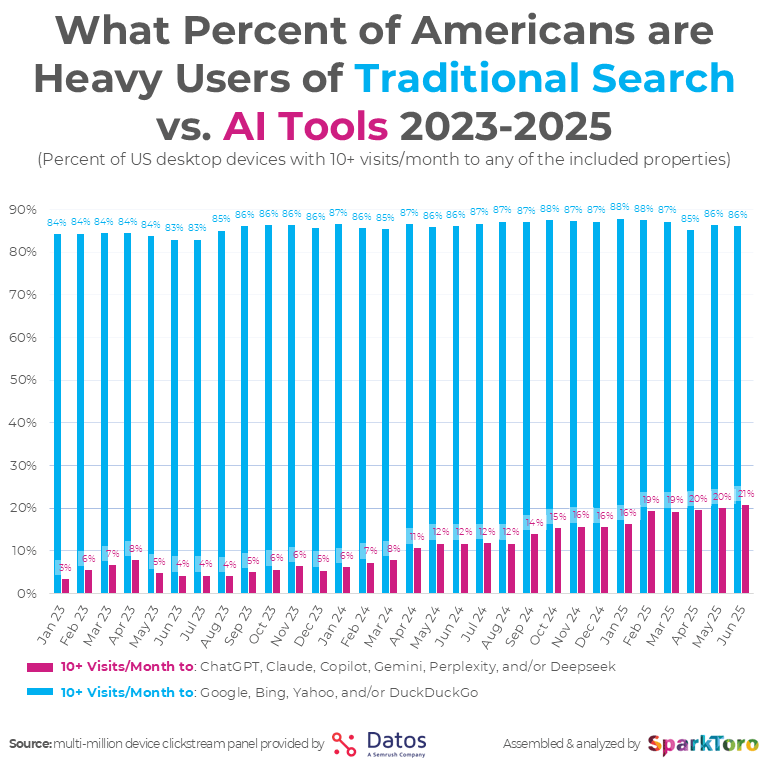
Usage of AI Platforms vs. Traditional Search
Many marketers wonder whether platforms like ChatGPT and Gemini are replacing Google when it comes to search behavior. The data says otherwise. While interest in LLMs has grown, they still represent a tiny fraction of overall usage.
From SparkToro and SimilarWeb:
- In Q4 2024, 21% of U.S. web users visited ChatGPT at least once per month
- Despite that, 99.8% of those users also used Google
- Google’s daily search volume is about 14 billion; ChatGPT handles around 37.5 million prompts per day
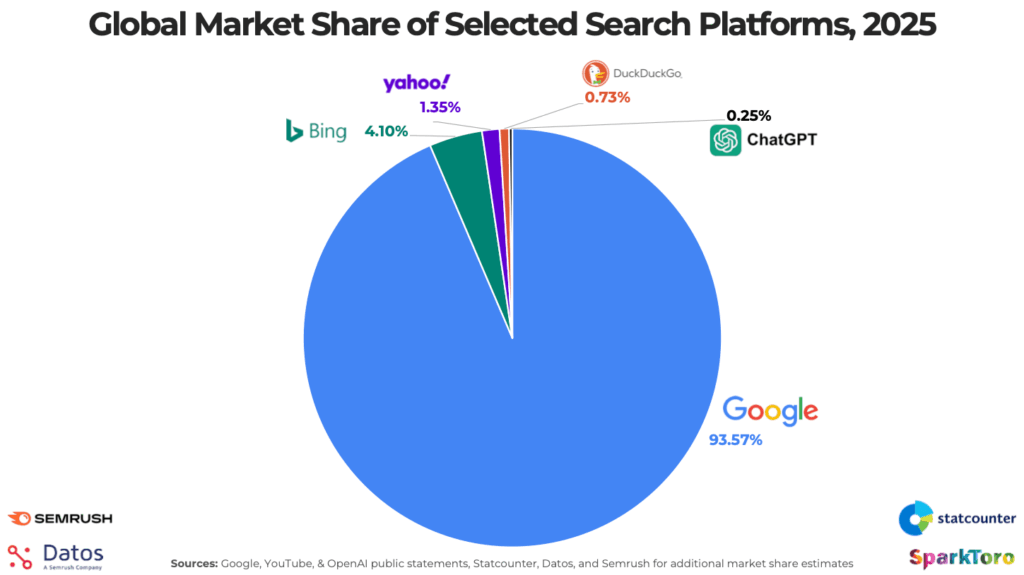
- Other AI platforms like Perplexity, Claude, Copilot, and Gemini each account for less than 5% user adoption
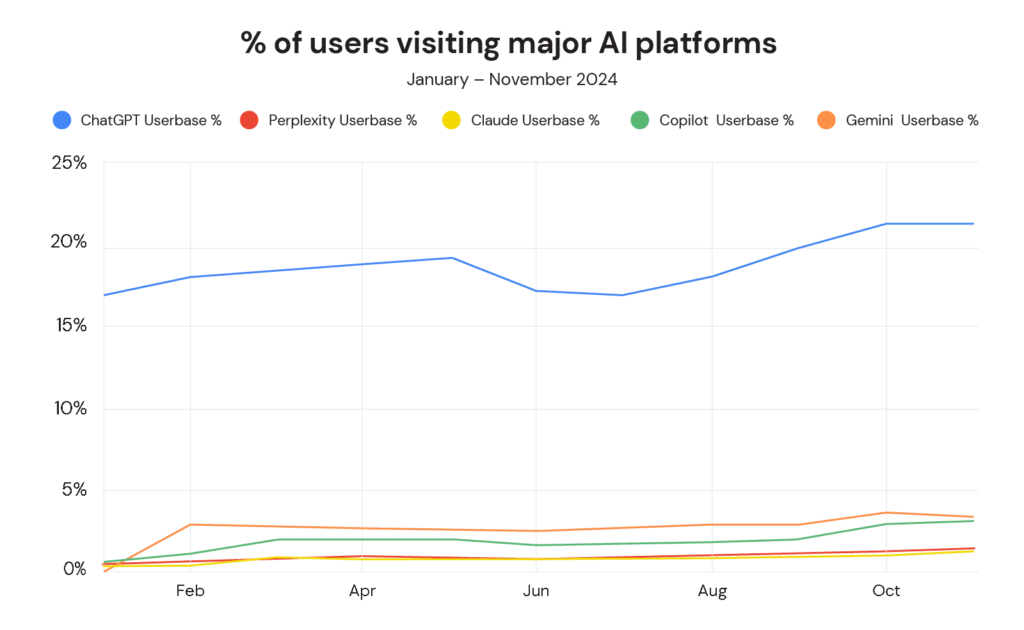
This reinforces that while AI platforms are becoming a layer in the information journey, they are not replacing traditional search engines.
When Lower Traffic Doesn’t Mean Lower Revenue
A growing number of brands are reporting higher revenue despite flat or declining website traffic. HubSpot is a standout case:
- Blog traffic declined sharply in 2023 and 2024
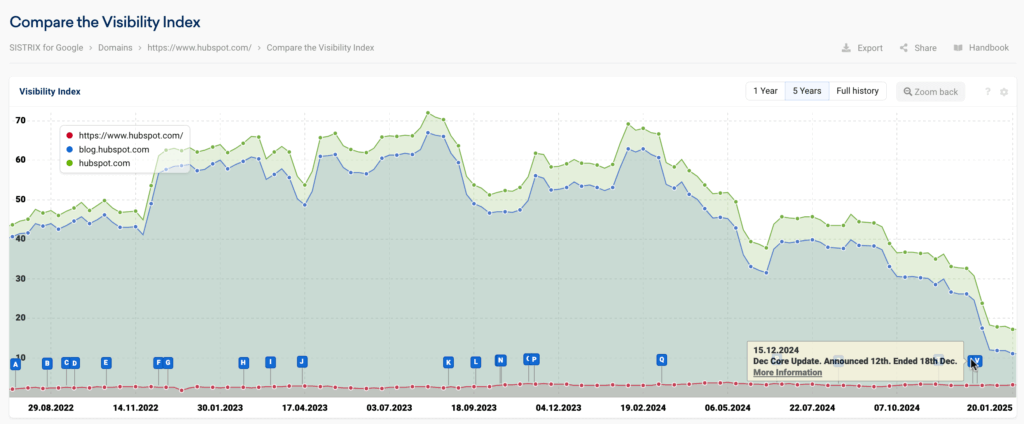
- Yet Q4 revenue hit an all-time high
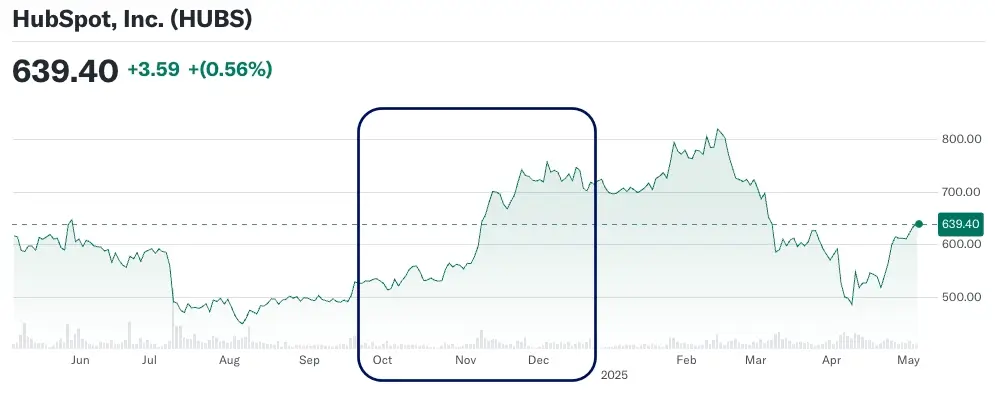
What this suggests:
- Influence and brand awareness may drive conversions even when traffic doesn’t rise
- New attribution models are better at tying business outcomes to multi-touch journeys
What It All Means for Your SEO Strategy
AI is changing how people interact with search results, and that shift means fewer guaranteed clicks. But SEO isn’t obsolete. It just needs a different approach.
For brands and marketers, this means:
- Stop measuring SEO performance on traffic alone
- Embrace influence, brand recall, and cross-channel visibility
- Optimize for discovery across platforms, not just in Google rankings
Search is still a critical discovery channel. But the way people engage with content—and what counts as a successful visit—is evolving fast.
Don’t Let AI Erase Your Organic Traffic
Traditional SEO is evolving. We help forward-thinking brands adapt their strategy for AI Platforms like ChatGPT, Gemini, and more.
Sources of Information
- SparkToro: New Research: 20% of Americans use AI tools 10X+/month, but growth is slowing and traditional search hasn’t dipped
- SparkToro: 2024 Zero-Click Search Study
- SparkToro: AI Not Disrupting Search (Yet)
- Seer Interactive: AI Overview CTR Report
- Search Engine Land: Google 5 Trillion Searches Per Year
- Seer Interactive: Why 2020’s SEO KPIs Don’t Work Anymore
- SparkToro: Traffic is Down, Revenue is Up
- SparkToro: Google vs. ChatGPT Search Volumes
- Bloomberg: Google AI Search Leaves Site Owners Behind
- SEMrush: ChatGPT Search Insights
